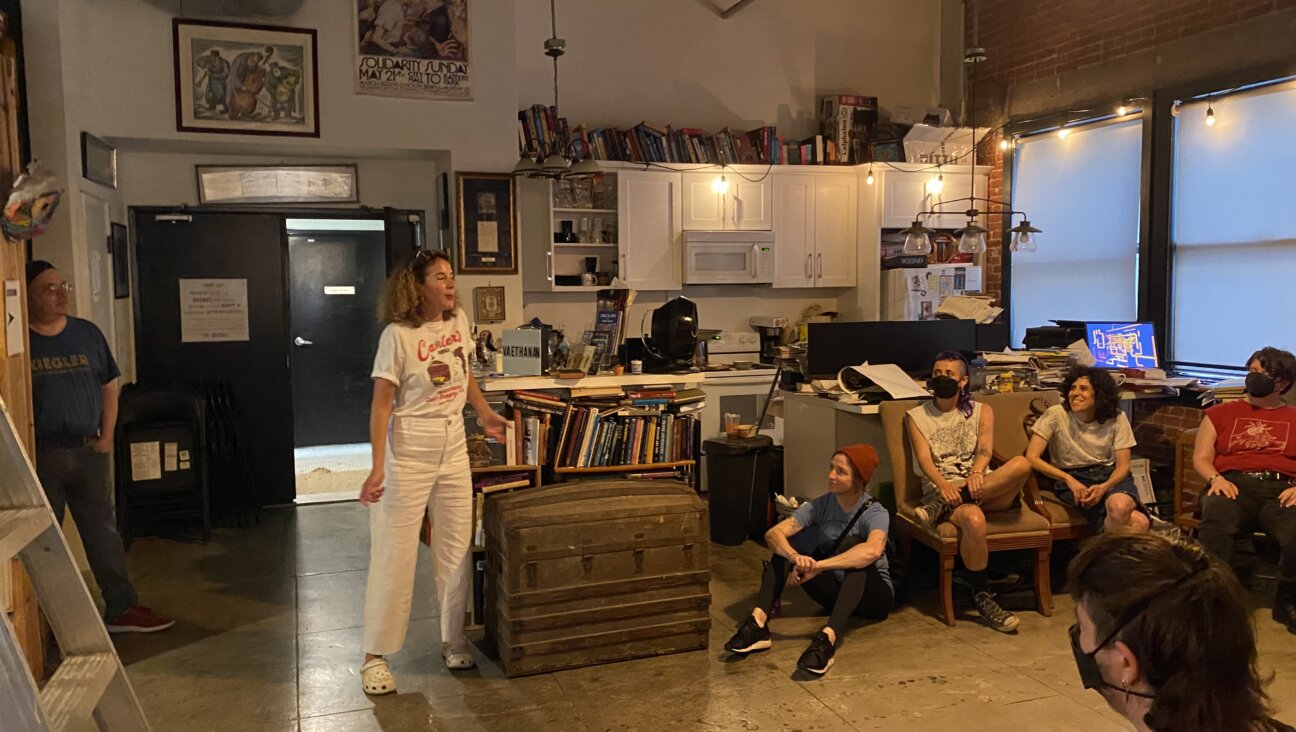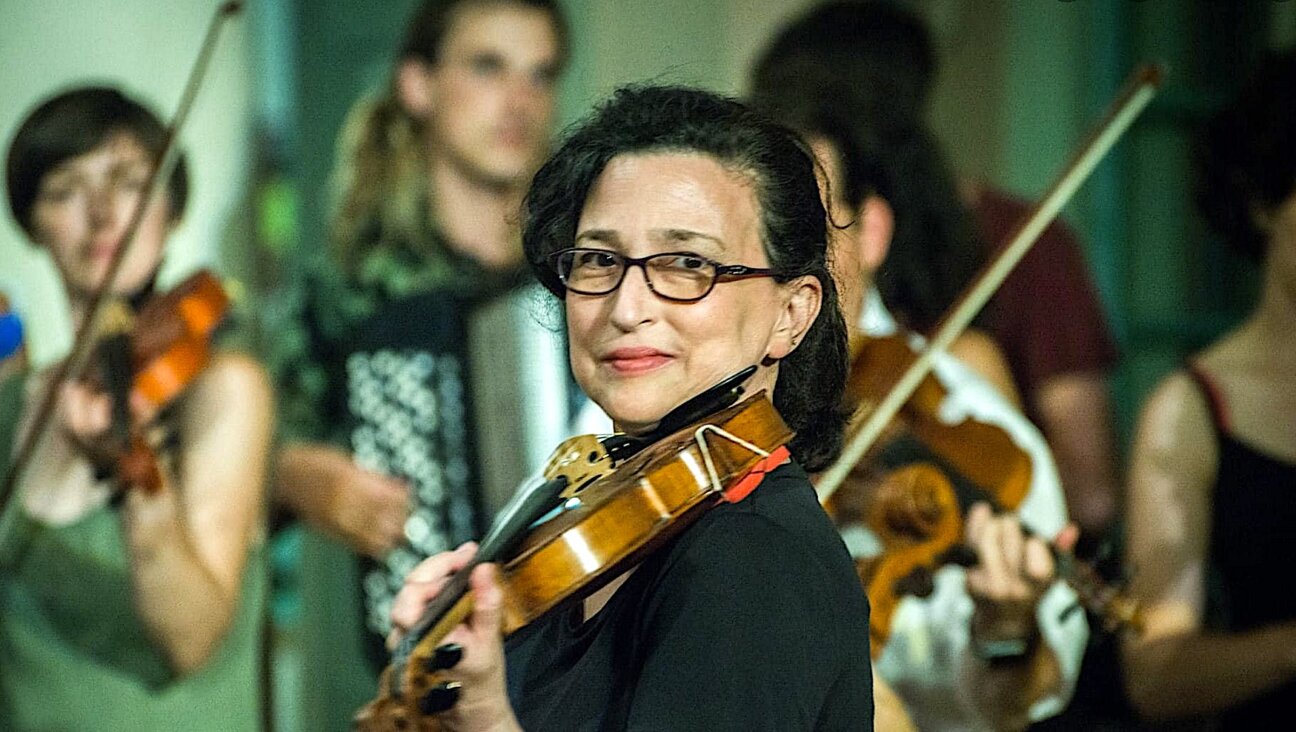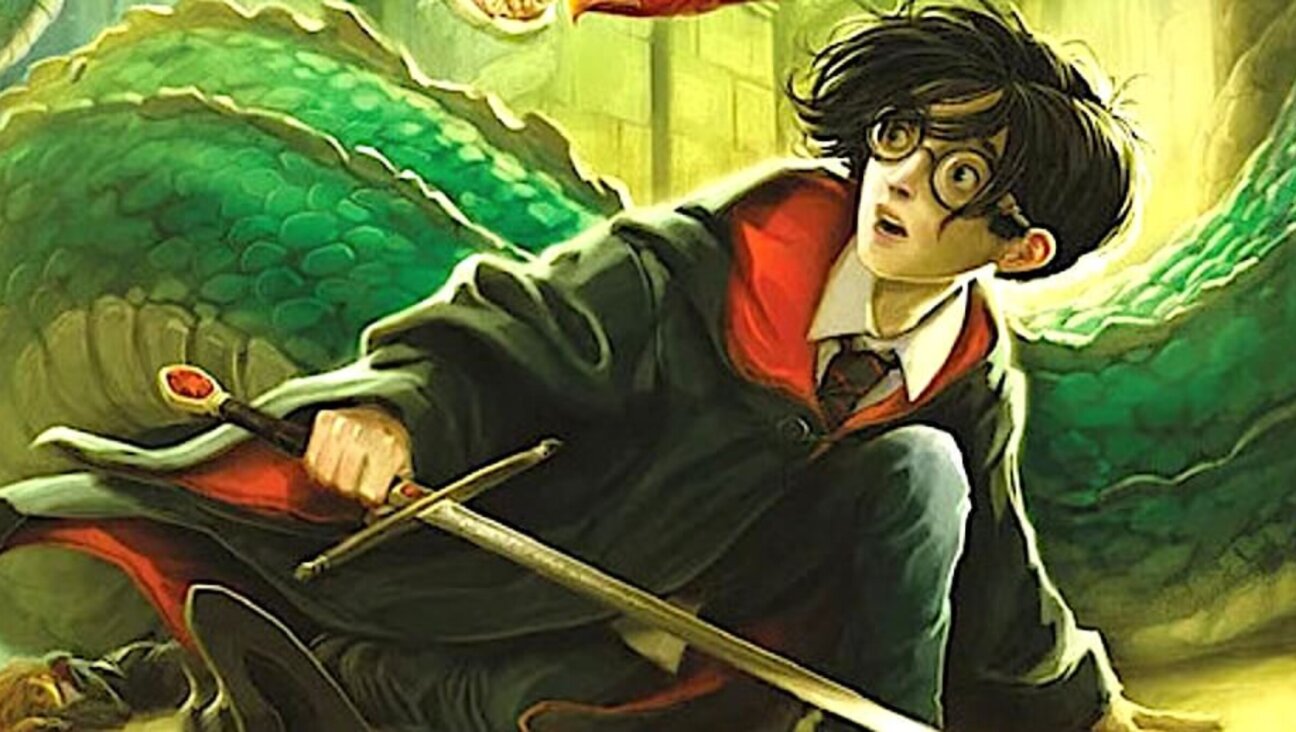Heirloom: A notebook with my mother’s beautiful handwriting

Image by S. Londner
This story is part of the Forverts series, “Our Favorite Heirlooms.”
My favorite heirloom is a notebook that my mother used when she was learning Hebrew as a teenager.
My mother Cypora (Cesi in Polish, Sylvia in English) was born in Przytyk, Poland in 1928, site of an infamous pogrom during the interwar period.
Her family was poor. Her father Menakhem Dovid, whom I’m named after, was a shmate hendler, selling rags and pieces of cloth. They lived on a farm and he would drive his cart and horse into town each day except Shabbos. In order to get to town he needed to go through a forest where he feared that robbers might be lying in wait to kill him and steal his horse and cart. In order to trick them into thinking that he wasn’t alone, he would talk out loud in Polish saying: “Tsod Va, Todo Yedem” (Two are not one). Almost a century later this would become the first line of the ksube, or wedding contract, that I wrote when my wife and I got married.
Menakhem Dovid was extremely pious and divorced his first wife because she was not frum enough. He remarried and they had my mother. My mother was barely a teenager when they were all sent to the Lodz Ghetto. At some point my mother was deported and sent to Auschwitz. Her parents were murdered in a mobile gas van.
How she survived Auschwitz is anyone’s guess, but she ended up in Bergen-Belsen until it was liberated by the English. From there, the Swedish Red Cross took her to Lidingo, Sweden, where she was enrolled in Beys Yankev, an Orthodox girls’ school established there to serve the needs of Jewish girls who had survived the Holocaust.
One of the subjects she studied was the Hebrew language. In order to learn the vocabulary, she wrote down the words in a notebook she called “Pinkus L’Ivrit” (Record book for Hebrew).
On one side the words are written in Yiddish, on the other – in Hebrew. I gaze in awe at her beautiful handwriting. If only I could write as well as this.
After the establishment of the State of Israel, most of the students immigrated to Israel, but my mother was refused because she suffered from tuberculosis. She made her way to New York where she worked in the garment industry, a proud member of the ILGWU (International Ladies Garment Worker’s Union). Later she moved to Cleveland where she lived with her half-brother who had also miraculously survived the war. There she met my father Hershel (Heshek in Polish, Harry in English) and they married in 1954. I came along in 1955 and my brother Ronnie (Srul Rivn “Yisroel Reuven”) in 1959. My parents were Orthodox Jews, especially my mother, who at one time even wore a sheitel. I attended various yeshivas and then went off to college.
One would have hoped that after surviving the horrors of the Holocaust, my parents’ lives in America would have been better but this was not to be the case. Ronnie died of brain cancer at only ten years of age. Three years later, just shy of my fifteenth birthday, I was diagnosed with the same cancer that took Ronnie’s life.
The Holocaust and the tragedies that befell her children turned Cypora into a broken vessel. For the rest of her life, until she passed away at age 66, she suffered tremendously from physical and mental illness. My father devoted his life to taking care of her. When he couldn’t do it anymore I took over.
Looking at the “Pinkus L’Ivrit” comforts me, as a reminder of a time when my mother was happy and looking forward to a better life for herself.
A message from our CEO & publisher Rachel Fishman Feddersen

I hope you appreciated this article. Before you go, I’d like to ask you to please support the Forward’s award-winning, nonprofit journalism during this critical time.
At a time when other newsrooms are closing or cutting back, the Forward has removed its paywall and invested additional resources to report on the ground from Israel and around the U.S. on the impact of the war, rising antisemitism and polarized discourse.
Readers like you make it all possible. Support our work by becoming a Forward Member and connect with our journalism and your community.
— Rachel Fishman Feddersen, Publisher and CEO























